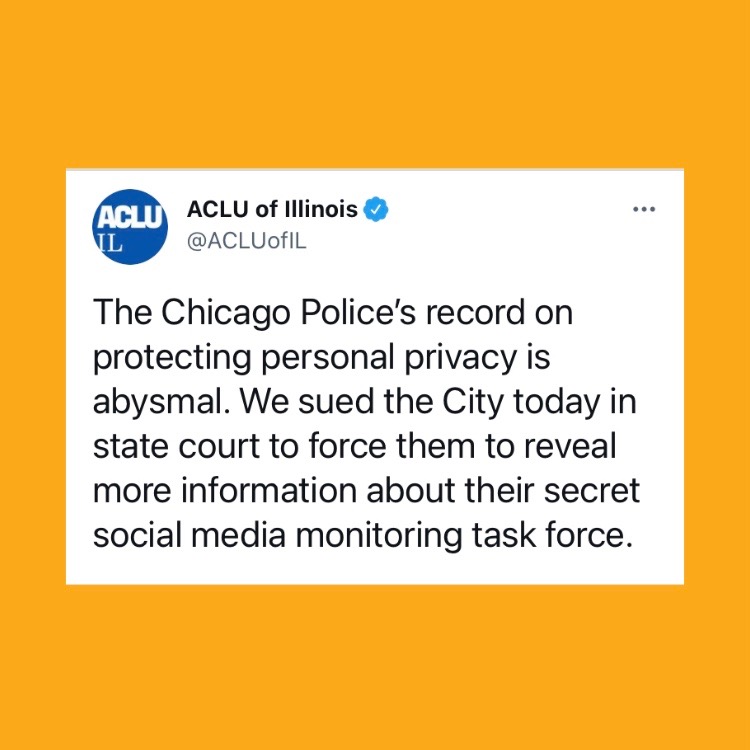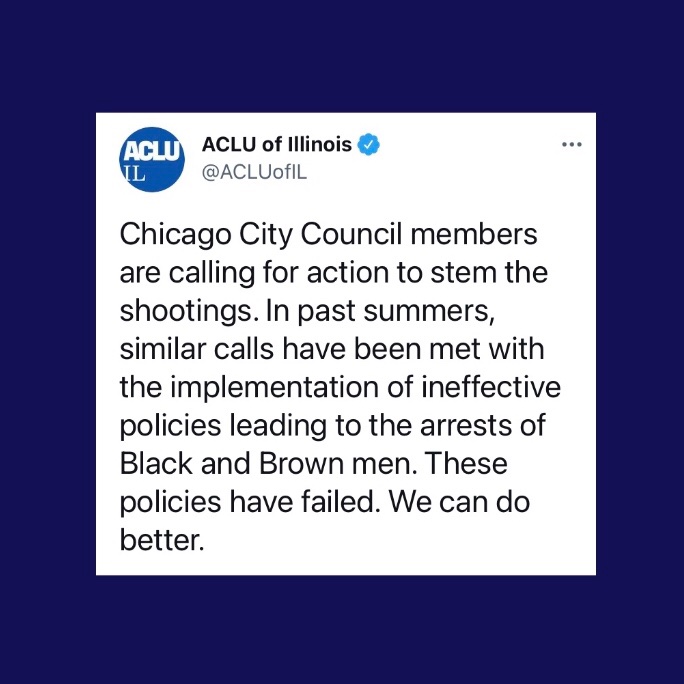Last summer, Chicago Mayor Lori Lightfoot and Police Superintendent David Brown both spoke publicly to highlight a 20-person CPD task forced assigned to monitor social media posts by residents of the City. Today, the Chicago Police Department is being sued in state court after refusing to share information about the publicly discussed program.
The public announcement of the CPD social media task force followed weeks of protests in Chicago aimed at ending police violence against Black people. The protests were spurred by the murder of George Floyd in Minneapolis and turned out thousands of people from diverse communities, including Black and brown people who spoke out against police violence against their communities. Many people used social media to gather together in protest.
Against this backdrop, Mayor Lightfoot declared that the City’s social media monitoring purportedly would “provide the crucial information our public safety agencies need…” This public proclamation raises a red flag in light of the City’s dark history of surveillance and infiltration of organizations disfavored by City Hall. Throughout the 1960s and 1970s, Chicago police’s notorious Red Squad engaged in a widespread program of surveillance of civil rights and racial justice advocates and those opposed to the Vietnam War.
More recently, CPD for years (2014-2018) withheld the name of Dunami—a software maker the agency used for social media monitoring. The name was only revealed after a settlement of a previous ACLU of Illinois lawsuit. CPD also signed a two-year contract effective January 1, 2020 to use Clearview AI’s powerful facial recognition tool without notifying the public or even the Mayor’s office until after the New York Times ran an exposé on the company later that month.
“CPD’s record on respecting personal privacy is abysmal,” said Ariana Bushweller, Attorney, O’Melveny Fellow at the ACLU of Illinois who was part of the legal team filing the lawsuit today. “With that history, CPD must provide public records that answer basic questions about why the City is monitoring social media accounts, who has access to the information collected, and how the information is being used. The public needs this information to learn whether this latest surveillance is wrongfully targeting Black and Brown people, as has too often been the case across the country, including the surveillance of Black activists.”
In August 2020, the ACLU of Illinois asked the CPD for basic information on the social media monitoring program, including (among others) the purpose for the program, the use of information collected from social media accounts, any assistance CPD received from state or federal agencies in monitoring social media, the names of those who had access to information collected from social media accounts, and the supervision structure for the social media monitoring program.
“If the Mayor and Superintendent can boast about this program in public, they can release the public records that explain how it works and let us see whether it disproportionately harms people of color,” Bushweller added. “It is unfortunate that we have to ask a court for this basic information.”
A copy of the lawsuit can be found here.
Date
Thursday, July 15, 2021 - 8:30amFeatured image

